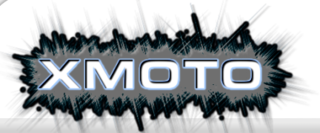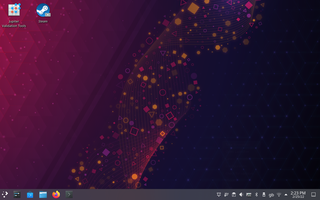
Blitz BASIC is the programming language dialect of the first Blitz compilers, devised by New Zealand-based developer Mark Sibly. Being derived from BASIC, Blitz syntax was designed to be easy to pick up for beginners first learning to program. The languages are game-programming oriented but are often found general purpose enough to be used for most types of application. The Blitz language evolved as new products were released, with recent incarnations offering support for more advanced programming techniques such as object-orientation and multithreading. This led to the languages losing their BASIC moniker in later years.
Irrlicht is an open-source game engine written in C++. It is cross-platform, officially running on Windows, macOS, Linux and Windows CE and due to its open nature ports to other systems are available, including FreeBSD, Xbox, PlayStation Portable, Symbian, iPhone, AmigaOS 4, Sailfish OS via a QT/Qml wrapper, and Google Native Client.
GameMaker is a series of cross-platform game engines created by Mark Overmars in 1999 and developed by YoYo Games since 2007. The latest iteration of GameMaker was released in 2022.

The Spring Engine, is a game engine for real-time strategy (RTS) video games. The game engine is free and open-source software, subject to the terms of the GNU General Public License v2.0 or later.
UNIGINE is a proprietary cross-platform game engine developed by UNIGINE Company used in simulators, virtual reality systems, serious games and visualization. It supports OpenGL 4, Vulkan and DirectX 12.
Mac gaming refers to the use of video games on Macintosh personal computers. In the 1990s, Apple computers did not attract the same level of video game development as Microsoft Windows computers due to the high popularity of Microsoft Windows and, for 3D gaming, Microsoft's DirectX technology. In recent years, the introduction of Mac OS X and support for Intel processors has eased porting of many games, including 3D games through use of OpenGL and more recently Apple's own Metal API. Virtualization technology and Boot Camp also permit the use of Windows and its games on Macintosh computers. Today, a growing number of popular games run natively on macOS, though as of early 2019, a majority still require the use of Microsoft Windows.

Unity is a cross-platform game engine developed by Unity Technologies, first announced and released in June 2005 at Apple Worldwide Developers Conference as a Mac OS X game engine. The engine has since been gradually extended to support a variety of desktop, mobile, console and virtual reality platforms. It is particularly popular for iOS and Android mobile game development, is considered easy to use for beginner developers, and is popular for indie game development.
The IUP Portable User Interface is a computer software development kit that provides a portable, scriptable toolkit to build graphical user interfaces (GUIs) using the programming languages C, Perl, Lua, Nim and Zig, among others. This allows rapid, zero-compile prototyping and refinement of deployable GUI applications.

Cheat Engine (CE) is a proprietary, source available freeware memory scanner/debugger created by Eric Heijnen for the Windows operating system in 2008. Cheat Engine is mostly used for cheating in computer games and is sometimes modified and recompiled to support new games. It searches for values input by the user with a wide variety of options that allow the user to find and sort through the computer's memory. Cheat Engine can also create standalone trainers that can operate independently of Cheat Engine, often found on user forums or at the request of another user.
The operating system Linux can be used for playing video games. Because many games are not natively supported for the Linux kernel, various software has been made to run Windows games, such as Wine, Cedega, and Proton, and managers such as Lutris and PlayOnLinux. The Linux gaming community has a presence on the internet with users who attempt to run games that are normally not supported on Linux.

X-Moto is a free and open source 2D motocross platform game developed for Linux, FreeBSD, Mac OS X and Microsoft Windows, where physics play an all important role in the gameplay. The basic gameplay clones that of Elasto Mania, but the simulated physics are subtly different.

Hollywood is a commercially distributed programming language developed by Andreas Falkenhahn which mainly focuses on the creation of multimedia-oriented applications. Hollywood is available for AmigaOS, MorphOS, WarpOS, AROS, Windows, macOS, Linux, Android, and iOS. Hollywood has an inbuilt cross compiler that can automatically save executables for all platforms supported by the software. The generated executables are completely stand-alone and do not have any external dependencies, so they can also be started from a USB flash drive. An optional add-on also allows users to compile projects into APK files.

Construct is an HTML5-based 2D video game engine developed by Scirra Ltd. It is aimed primarily at non-programmers, allowing quick creation of games through visual programming. First released as a GPL-licensed DirectX 9 game engine for Microsoft Windows with Python programming on October 27, 2007, it later became proprietary software with Construct 2, as well as switching its API technology from DirectX to NW.js and HTML5, as well as removing Python and adding JavaScript support and its plugin SDK in 2012, and eventually switched to a subscription-based model as a web app.
MonoGame is a free and open source C# framework used by game developers to make games for multiple platforms and other systems. It is also used to make Windows and Windows Phone games run on other systems. It supports iOS, Android, macOS, tvOS, Linux, PlayStation 4, PlayStation Vita, Xbox One and Nintendo Switch. It implements the Microsoft XNA 4 application programming interface (API). It has been used for several games, including Bastion and Fez.

SteamOS is a Linux distribution developed by Valve. It incorporates Valve's popular namesake Steam video game storefront and is the primary operating system for Steam Machines and the Steam Deck. SteamOS is open source with some closed source components.

Godot is a cross-platform, free and open-source game engine released under the MIT license. It was initially developed by Argentine software developers Juan Linietsky and Ariel Manzur for several companies in Latin America prior to its public release. The development environment runs on multiple operating systems including Linux, FreeBSD, NetBSD, OpenBSD, macOS, Microsoft Windows, Android, and web. It is designed to create both 2D and 3D games targeting PC, mobile, and web platforms and can also be used to develop non-game software, including editors.
LÖVE is a free, open-source, cross-platform framework released under the zlib license for developing 2D video games. The framework is written in C++ and uses Lua as its scripting language and is still maintained by its original developers.

GDevelop is a 2D and 3D cross-platform, free and open-source game engine, which mainly focuses on creating PC and mobile games, as well as HTML5 games playable in the browser. Created by Florian Rival; a software engineer at Google, GDevelop is mainly aimed at non-programmers and game developers of all skillsets, employing event based visual programming similar to engines like Construct, Stencyl, and Tynker.










